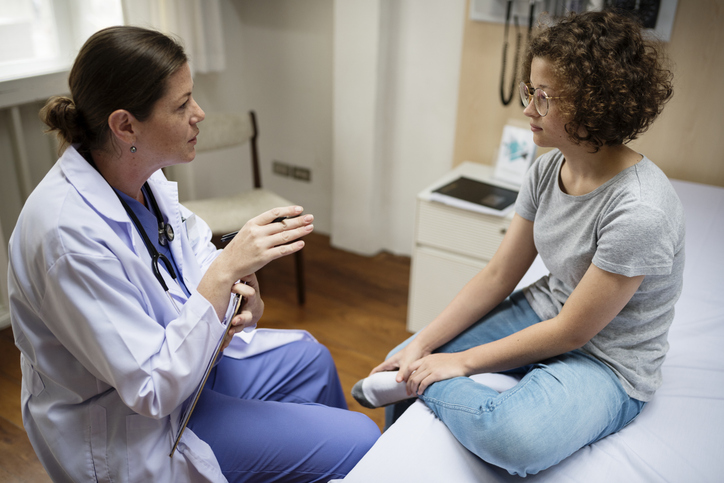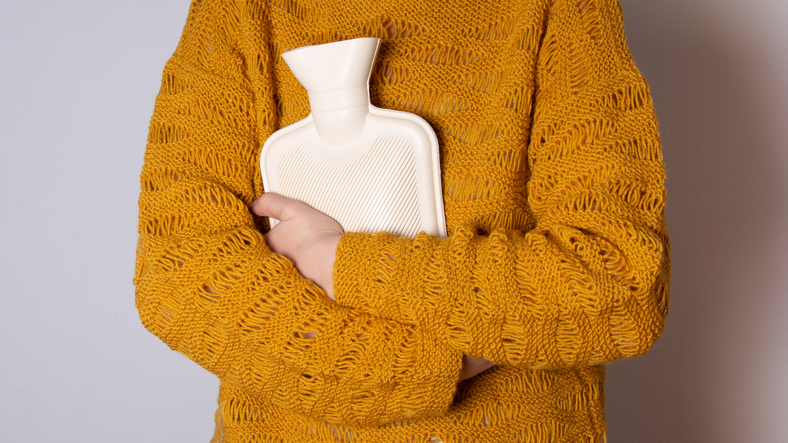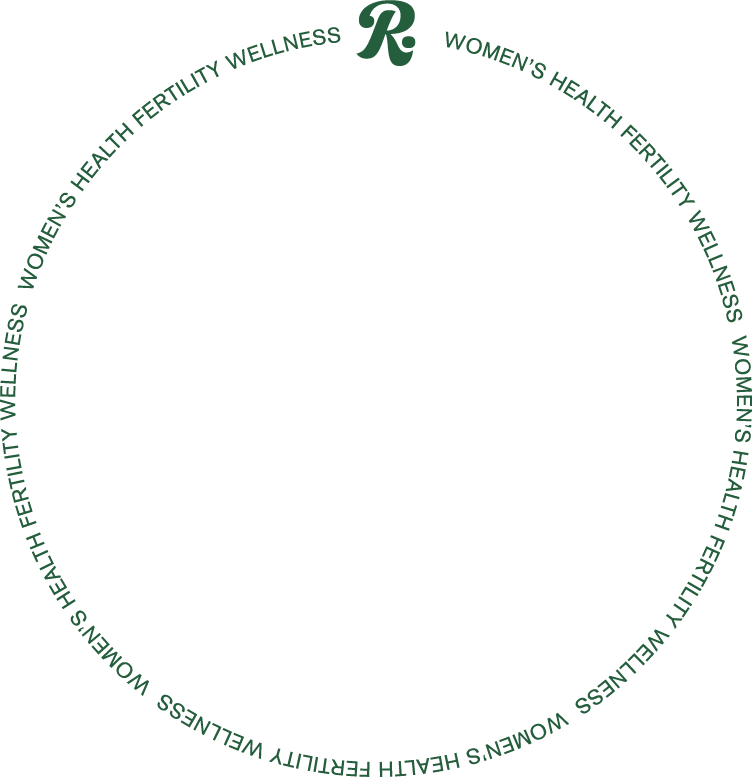There are many reasons why it’s a good idea to get intimate with all four phases of your menstrual cycle -- not just when you get your period. Sure, there’s no shortage of information about pain and cramps during menstruation (aka the first phase), but pain is no stranger to the third phase, ovulation, either.
Ovulation pain, also known as “mittelschmerz,” occurs around day 14 of a 28-day cycle, when the ovary releases an egg. (The term is derived from the German words “middle” and “pain,” which definitely tracks.) Mittelschmerz is a common side effect of ovulation: “Up to around 40% of people experience ovulation pain,” says Jessica Ryniec, M.D., a reproductive endocrinologist and infertility specialist at CCRM Fertility in Boston. Symptoms can include twinging, cramps, light vaginal bleeding, and discharge.
Mittelschmerz tends to present in the lower abdomen and pelvic region, with the pain occurring on the side that’s releasing the egg (if you have two ovaries, each one usually releases an egg every other month).
While ovulation pain is generally considered innocuous and doesn’t need medical intervention, some people with endometriosis may beg to differ. Endometriosis is a medical condition where the tissue that normally lines the uterus grows outside the uterus – with this abnormal tissue often affecting the ovaries and fallopian tubes as well. Pain, unfortunately, is a typical endo symptom, specifically during menstruation and sexual intercourse. It is also possible for endometriosis to exacerbate mittleschmerz.
So how can people living with endo better manage their monthly ovulation pain? Rescripted asked Dr. Ryniec for her advice:

Why endometriosis might cause more intense ovulation pain
Dr. Ryniec says there are a few different reasons why mittelschmerz gets worse for endo patients: It could be “due to scar tissue from endometriosis restricting movement that may come with ovulation.” Another possibility is “increased inflammation related to endometriosis.” The increased pain could also be caused by endometriomas, aka “chocolate cysts” (cysts filled with old blood). “The presence of endometriomas already causes the ovary to stretch.” This is then “exacerbated by the release of an egg,” she says.
For those who don’t have endometriosis, and likely experience “regular” ovulation pain, we’re talking “mild, relatively short-lived” discomfort that lasts “less than 24-48 hours,” says Dr. Ryniec. But for endo patients, mittelschmerz is hardly a walk in the park: “The pain can be more severe, last longer, and have other associated symptoms such as rectal, bladder, or leg pain.”
When to seek medical attention for your ovulation pain
It’s never a bad idea to discuss your ovulation pain with your healthcare provider. Depending on the severity of your discomfort, it is possible your mittelschmerz could help eventually determine an endometriosis diagnosis: “Many people who experience ovulation pain will not ultimately end up with a diagnosis of endometriosis,” acknowledges Dr. Ryniec, “but it can be one additional clue in the evaluation for this difficult-to-diagnose disease."
Dr. Ryniec suggests mentioning your ovulation pain with your physician “if it is more severe, lasting longer, associated with the other symptoms as mentioned above, or interfering with your regular activity.” As for a potential endometriosis diagnosis, it’s worth bringing up your mittelschmerz “if you have experienced ovulation pain in association with other concerns such as painful periods or chronic pelvic pain.”

Managing ovulation pain with endometriosis
Any treatment plan should always be discussed first with your healthcare provider, but Dr. Ryniec recommends over-the-counter pain relief or anti-inflammatory meds such as Tylenol or NSAIDs as a starting point. Patients can also consider “lifestyle interventions like a warm bath, heating pad, massage, exercise, or acupuncture.” But for those who need a more aggressive form of treatment, she says “it may be worth considering hormonal medications such as the birth control pill to suppress ovulation and cyclical flares in hormone levels (and endometriosis symptoms).”
Sarene Leeds holds an M.S. in Professional Writing from NYU, and is a seasoned journalist, having written and reported on subjects ranging from TV and pop culture to health, wellness, and parenting over the course of her career. Her work has appeared in Rolling Stone, The Wall Street Journal, Vulture, SheKnows, and numerous other outlets. A staunch mental health advocate, Sarene also hosts the podcast “Emotional Abuse Is Real.” Subscribe to her Substack, the Critical Communicator, and follow her on Instagram, BlueSky, or Threads.






.jpeg)












%20Black%20Pepper%20Probiotics%20Organic%20Non-GMO%20Vegan%20Gluten%20Free%20Herbal%20Supplement.png)

%20Muse%E2%84%A2%20EEG-Powered%20Meditation%20&%20Sleep%20Headband.png)





